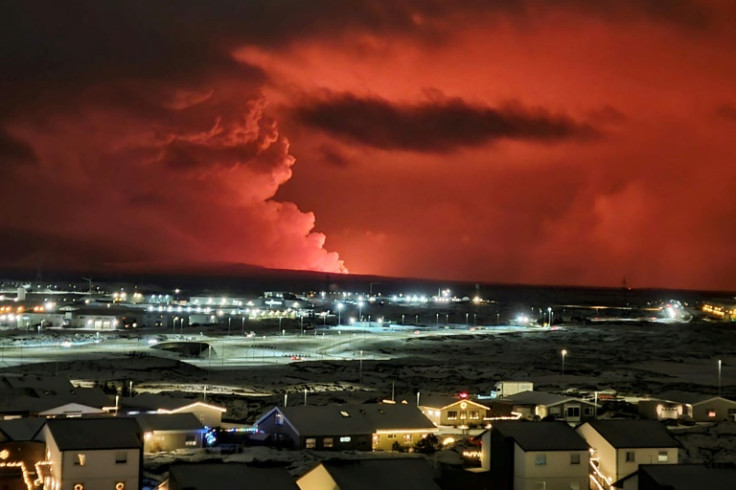Is It Safe To Travel To Iceland Amid Volcanic Eruption?
The location of the eruption is Sundahnúkagígar, around 3 km north of the town Grindavik

A volcanic eruption took place on Monday (Dec. 18) on Iceland's Reykjanes Peninsula, weeks after thousands of small quakes hit the southwest coast.
The latest eruption began at 10:17 pm, with the exact location being Sundahnúkagígar, around 3 km north of the town Grindavik. As the eruption spread, magma, or semi-molten rock, could be seen spewing along the ridge of a hill.
The intensity of the eruption reduced in the early hours of Tuesday, according to the Icelandic Met Office. But that does not suggest that the eruption was coming to an end.
FCDO's advisory
Neither the Icelandic government nor the UK Foreign Office has declared travelling to Iceland unsafe.
The eruption is limited to the Reykjanes peninsula in the southwest, leaving the majority of the country unaffected.
The Foreign, Commonwealth and Development Office (FCDO) has issued a travel advisory that states: "The capital city Reykjavik, and the rest of Iceland has not been impacted by this eruption. You should monitor local media for updates and follow the authorities´ advice on travel to the area."
If the travellers avoid the immediate vicinity of the eruption, such as the town of Grindavik, the risk is extremely low and there is nothing to worry about.
"The eruption does not present a threat to life," said the Icelandic government.
However, it has been reported that there could be some pollution passing over Reykjavik, about 18 miles away, in the coming hours. So, travellers heading to Iceland have been urged to check the latest situation if they are going to the city in the next few days.
"According to the weather forecast, gas pollution could be noticed in the capital area late tonight or in the morning. New work is being done on a hazard assessment card and it will be issued later today," said Iceland's meteorological office on Tuesday.
Are flights disrupted?
Only a few flights in and out of Iceland's main airport have been affected by the volcanic eruption.
For almost six weeks, the Icelandic authorities have been checking seismic activity close to Keflavik Airport, a major North Atlantic aviation hub.
According to data from Flightradar24, the last flight to depart from Keflavik airport was an easyJet carrier for Manchester. It took off at 1:35 am, over five hours late, and arrived safely at Manchester airport at 4 am.
Since then, the arrivals and departures at the Keflavik airport have been normal. As per the advisory from the FCDO, Keflavik International Airport is operating as normal, but passengers have been asked to check for the latest updates before travelling to Iceland.
Meanwhile, the national airline, Icelandair has told its passengers that "the eruption does have a very minimal effect on the operations of Icelandair or Keflavik airport and their flight schedule remains unchanged".
"No flights have been delayed or cancelled due to the eruption. The safety of our passengers and staff is always our number one priority and at the heart of every decision we make. We're monitoring the situation closely and will inform our passengers of any new developments," added Icelandair.
© Copyright IBTimes 2025. All rights reserved.






















